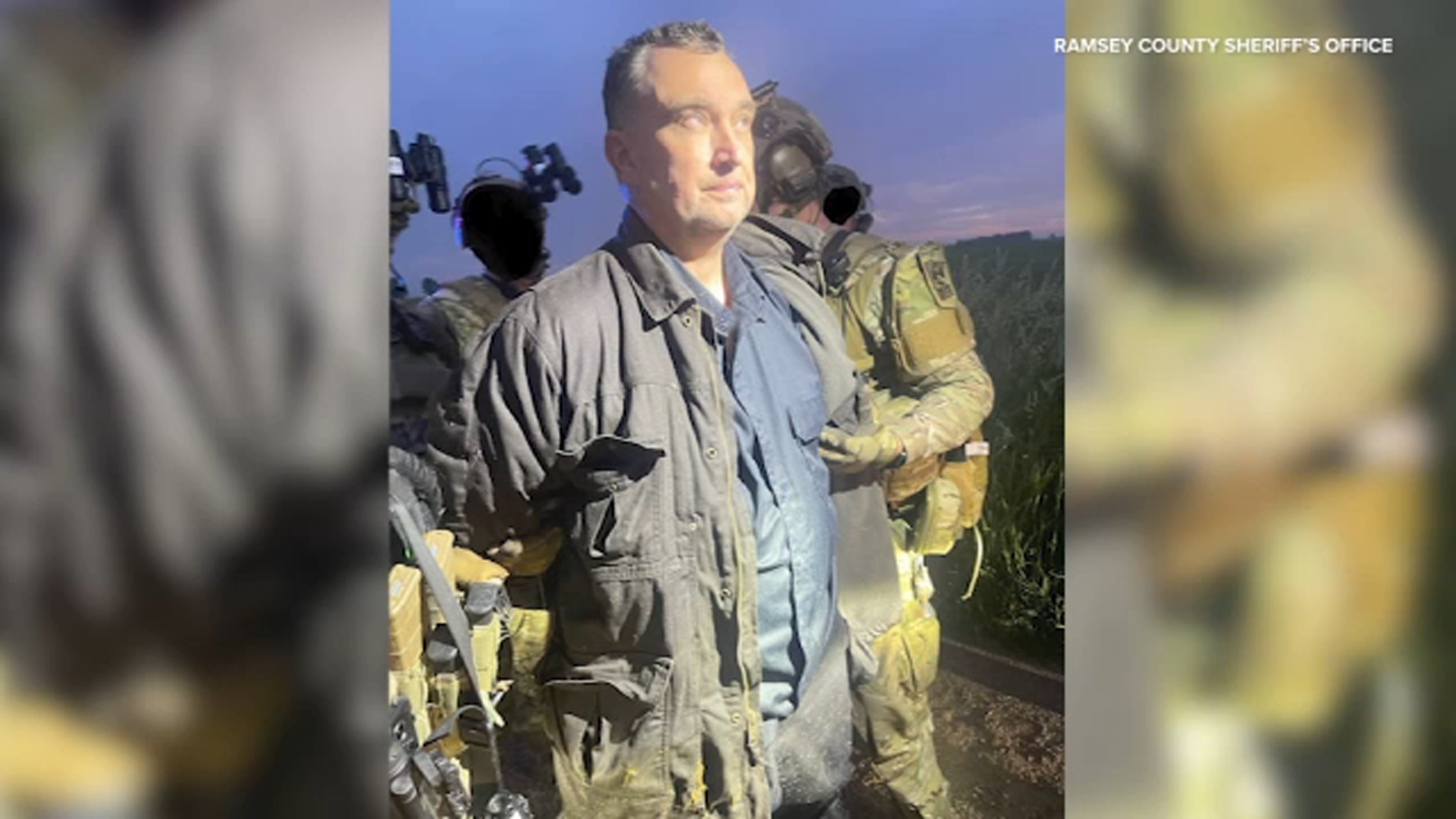Smoke from Canadian wildfires moves into Chicago area, potentially impacting air quality
CHICAGO (WLS) -- Smoke from wildfires in Canada is moving into the Chicago area Friday evening and Saturday morning, potentially reducing air quality.
The smoke was expected to begin moving in around mid-day before really settling in during the evening around sunset, ABC7 meteorologists said. In the afternoon, the winds direction shifted and came out of the north and northwest, bringing the smoke into the area.
Doctors are warning people about the dangers of being outside this weekend. The tiny particles can affect everyone.
A tracker with the latest updates on air quality levels for areas across the state can be found on the AirNow government website.
ABC7 Chicago is now streaming 24/7. Click here to watch
According to the Illinois Environmental Protection Agency, the moving smoke is expected to loom over the area at least through Saturday morning, which might not be the best news for some outdoor runners.
"We've been having some weird weather," runner Nate Peters said. "Couple weeks ago, it was the dust coming in, now it's the smoke. I didn't know that. I'm a little bit nervous for my respiratory system."
Air quality was good to moderate across the Chicago area Friday morning, but it could potentially dip to being unhealthy for sensitive groups.
"With everything on now with the weather, I think that smoke can travel for miles," said Mohamad Tharwat, who is visiting Chicago from Florida.
There is potential to have some of that smoke in lower parts of the atmosphere and the smoke may stick around into the weekend. Just as summer finally arrives, medical experts are warning people to stay inside.
"We're expecting quite a bit of wildfire smoke from Canada coming in, just like we did two years ago," said Dr. Juanita Mora with the American Lung Association.
The Canadian province of Manitoba has declared a state of emergency over a series of wildfires. It began on Monday and has since exploded in size.
Roughly 17,000 people have evacuated their homes with more than 17 active fires burning, and dozens of structures have been totaled.
Firefighters from across Canada are helping to fight the flames. Meanwhile, smoke from those fires are heading to the Chicago area.
Canada's worst-ever wildfire season was two years ago in 2023 and choked much of North America, bringing dangerous smoke for months. Fortunately, this round is not expected to be so extreme, but it is expected to be toxic enough that medical experts are encouraging people to stay indoors.
RUSH University director for respiratory care services Steve Mosakowski says they saw more people at urgent cares and emergency departments then for trouble breathing.
He says they don't expect to see those extremes with this round of wildfires, which is currently in the moderate zone.
"People that are sensitive to having a lot of particles in the air will start to react to this and that could cause more coughing, more wheezing, more difficulty breathing," Mosakowski said. "Patients especially like those that have asthma or COPD or the elderly or very young."
The American Lung Association has tips to avoid lung irritation. It recommends people stay indoors who live close to fire-stricken areas protect the air quality in your home by keeping doors and windows shut notice if breathing becomes more difficult, and don't be afraid to seek help.
"It enters their eyes, so burning of the eyes, it enters through the nose, so tons of congestion," Dr. Mora said. "It goes in through our mouth down to our lungs, so a nuance and cough wheezing."
Dr. Mora said the highest risk populations are children under the age of 5, the elderly, pregnant women and people with lung disease like asthma or emphysema. Mora said all should stay inside.
"If they have to go outdoors because they work for construction, there are street vendors, etcetera, making sure they wear an N95 mask or more, because the particles will filter through a regular surgical mask," Dr. Mora said.
Also, if you know you're at risk, it's not a bad idea to bring your inhaler with you if you plan to exercise or walk outdoors.
"If they should really struggle to breathe, and they need to acclimate quickly, and they might have their rescue medication with them in the form of an inhaler, need to seek some medical help," Mosakowski said.
Chicago got a dry run a few weeks ago with the unusual dust storm that swept through the area, and two years ago Canada's worst wildfire season brought dangerous smoke for months, sending many Chicagoans to the hospital.
"We did see more people seeking out help, either in urgent care or through the emergency department. And again, it's those people that are very sensitive to that, people that usually have that underlying lung condition," Mosakowski said.
Because the wildfires are not at extreme levels, hospitals and urgent cares are not expecting as many people this time around, but respiratory specialists encourage people to keep windows closed, air conditioners running and hold off on long walks with pets. They are just as sensitive to wildfire smoke, if not more than their owners.
"We want to be looking for signs of coughing and gagging, difficulty breathing, that includes open mouth breathing, increased noise signs that they are panting," said Dr. Michael Bailey with the American Veterinary Medical Association.










